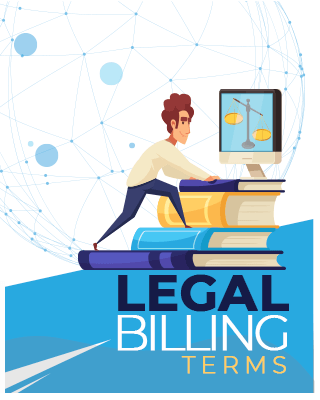General Legal Terms
- Civil law – General term used to characterize non-criminal law. It typically applies to disputes between private citizens or entities.
- Contract – An agreement between two or more parties to perform in a stated manner or refrain from doing some act. Contracts generally involve a promise in exchange for something of value.
- Due Diligence – Giving reasonable care and attention. It represents what steps a responsible person would take under the same conditions.
- Malfeasance – Actions that are illegal or morally wrong.
- Tort – One of the largest areas of law, torts are wrongful or illegal acts committed intentionally or negligently and resulting in an injury to another. An example of a negligent tort would be medical malpractice. An example of an intentional tort would be fraud or theft.
- Antenuptial or prenuptial agreement – A contract between two people who are about to marry that addresses the division of property in the event of a divorce.
- Appellant or petitioner – A party that is not satisfied with the outcome of a case at the trial level and initiates an appeal to the higher court.
- Appellee or respondent – The party against whom an appeal is brought.
- Arbitration – The settlement of a dispute out of court through the presentation of arguments to a person acting as an arbitrator. Depending on the jurisdiction, the arbitrator’s decision may be binding on all parties.
- Bad Faith – Entering into an agreement of contract with no intention of fulfilling the agreed-upon obligation.
- Brief – A written argument that summarizes the facts of a case and analyzes relevant legal arguments.
- Mitigating circumstances – Facts and circumstances that may lessen the degree to which one is held responsible.
- Negligence – The existence of a duty, followed by a breach of that duty and an establishment of damages.
- Of counsel – An attorney who is not a member of a firm but maintains a business relationship with the firm for the representation of common clients.
Damages
- Compensatory damages – Damages recovered for economic loss. For instance, if a party causes physical harm to another, they may be required to pay compensatory damages related to medical costs, medicine, physical therapy, and lost wages.
- Punitive damages – Damages awarded in addition to compensatory damages as a punishment for the actions that led to the injury. Punitive damages are also used as a deterrent for others against acting in a similar manner.
- Consequential Damages – Damages that the court may award when the injury experienced by a plaintiff was not directly caused by the wrongful conduct of a defendant but resulted as a consequence of the defendant’s action instead. For instance, the loss of business profit that results when a provider fails to deliver goods on time is consequential damage for which the court may order reimbursement.
- Liquidated Damages – Damages agreed upon by the parties to a contract. Liquidated damages are to be paid by a party who breaches the contract to a non-breaching party. A contract term that sets unreasonably high liquidated damages may be voided by the court.
Procedural Terms
- Cause of action – A plaintiff’s reason for filing a complaint or action against someone. Causes of action can involve various types of allegations, including negligence, breaches of contract, malpractice, or defamation. Every cause of action involves elements, and the plaintiff must prove each element to be successful in the case.
- Adverse judgment – A judgment against the interests of the represented party.
- Complaint – The written pleading that initiates legal action against a party. The complaint should set forth the allegations and it must be properly served on the defendant. general allegations against the defendant.
- Affidavit – A written statement made under oath that testifies to certain facts.
- Affiant – A person making a representation or statement, in writing under oath. An affiant is also one who signs an affidavit.
- Affidavit of service (return of service, proof of service) – A written statement swearing that a party or witness in a case has been properly provided with legal documents. It is crucial to a case due to a party’s constitutional right to be notified about charges and claims brought against them.
- Discovery – A fact-finding process that allows attorneys to learn what information and evidence the opposing side has in relation to a matter. The most commonly used discovery tools are interrogatories, depositions, and the request for the production of documents.
- Deposition – A process for securing sworn evidence from a party or witness in a case. Depositions generally occur prior to trial in a private setting.
- Hearsay Rule – In-court testimony of an out-of-court statement made by someone other than the in-court witness, given for the purpose of establishing the truth of matters asserted.
- Best evidence rule – Legal theory that the original or best available evidence should be presented in court hearings.
- Pretrial hearing – A court appearance typically held for the purpose of clarifying pressing issues and determining procedural aspects of an upcoming trial.
- Subpoena – A document issued under the authority of the court to compel the appearance of a witness.


















